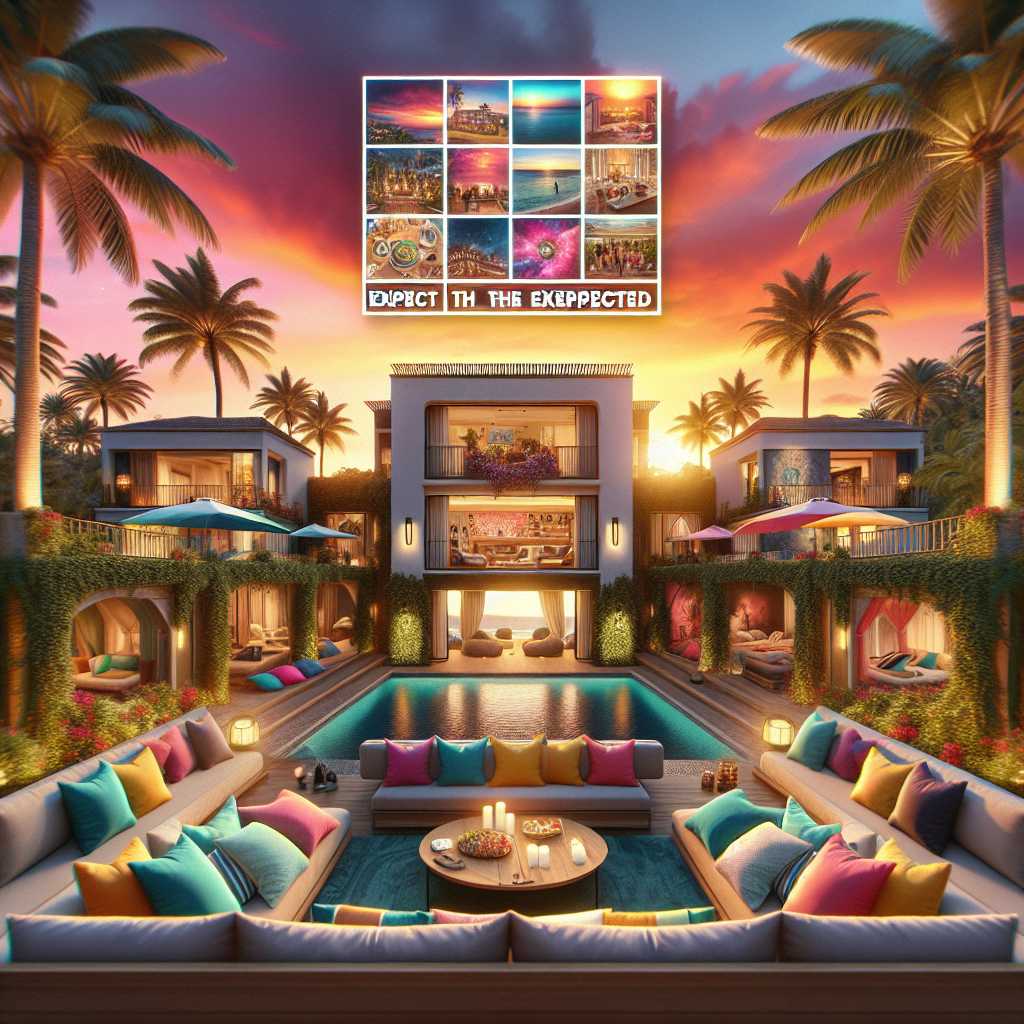Exploring the Cultural Phenomenon of Love Island
Love Island is a television series that has, since its revival in 2015 by ITV2 in the United Kingdom, captivated audiences with its unique blend of dating show dynamics, social interaction, and reality television drama. As a cultural phenomenon, Love Island has not only become a celebrated summer staple viewing in the UK but has also had international versions and a significant impact on popular culture. This article aims to explore various facets of Love Predictable ya.
Understanding Love Island’s Basic Premise and Format
Love Island places a group of participants, known as Islanders, in a luxury holiday villa, isolated from the outside world. In that setting, they are under constant surveillance by television cameras that capture every move. The contestants must couple up with another Islander, whether for love, friendship, or monetary gain, as being in a couple is essential for their survival in the game. Periodically, there are re-couplings where Islanders can choose to remain in their current couple or swap partners.
Contestants who remain uncoupled risk being eliminated and sent home. These continuous coupling and uncoupling events, along with weekly public votes and various challenges set by the producers, keep the dynamics fluid and often fraught with tension and drama. The goal is to remain in the Villa until season end and vie for a cash prize and potentially find love.
The Dynamics of Social Interaction and Relationship Formation
The essence of Love Island lies in its focus on the formation, development, and testing of romantic relationships under artificially created conditions which are conducive to strong emotional experiences. Islanders face forced proximity with their counterparts, leading encounters often governed by strategies that range from genuine connection-seeking to calculated game-playing meant to garner public support.
This environment allows viewers an insightful—if edited—glimpse into human social behavior, mating rituals, and the emotional highs and lows of modern romantic encounters. The show provides ample ground for discourses around attraction, courtship norms, conflict resolution, and personal growth in a fast-paced, highly intense setting. It reveals varying degrees of vulnerability and adaptability among contestants as they negotiate alliance formations divorced from their typical social networks.
Impact on Popular Culture and Media
Love Island’s influence on popular culture is eminently noticeable. Its jargon (“mugged off,” “my type on paper,” etc.), has seeped into common parlance especially among younger demographics. Furthermore, it has propelled its participants to celebrity status, often resulting in a lucrative career in television or brand endorsements post-show due to their expansive social media followings.
The program has sparked debate around dating ethics, body image standards, sexual openness, mental health issues – both due to on-screen events and the off-screen lives of former contestants – along with the broader consequences of instant fame in the digital age.
The Role of Audience Interaction and Technology
An essential component to Love Island’s success is audience interaction. Viewers are encouraged to vote via a downloadable app for their favorite couples or decide who leaves the villa at various points in the series. This direct involvement helps foster a sense of community among its audience as they use social media platforms and aggregate online discussions to share predictions, reactions, and commentaries that amplify the show’s reach and impact well beyond its televised airspace.
The digital footage not aired on television offers another layer through which dedicated viewers can engage with the program contributing further to its 24/7 reality promise – blurring lines between scheduled-programming consumption habits and interactive media engagement.
Exploring Criticisms and Controversies Surrounding Love Island
Beneath its glamorous sheen and entertainment value, Love Island has been at the center of numerous controversies which have brought forth issues like mental health care for reality TV stars, unrealistic beauty expectations set by the casting choices which predominantly feature contestants with commercial standard physical aesthetics, alongside portrayals of gender roles and heteronormativity.
Questions about psychological supports for participants both during and after their time on the series gained urgency following tragic incidents involving former contestants. While measures have been increased including enhanced screening procedures, continuous monitoring during filming, bespoke training for all Islanders on social media and financial management plus comprehensive psychological support thereafter; discussions about the risks associated with participating in shows like Love Island persist at an industry-wide level.
Notes
Image Description
A scenic view of a lavish villa at sunset surrounded by palm trees resembling a tropical paradise; prominently featured are lounge areas with colorful pillows where contestants of “Love Island” often gather for candid conversations. Inset box shows imagery depicting vibrant glimpses from episodes like dates or ‘re-couplings’ alongside iconic text playfully hinting at dramatic episodes saying “Expect the unexpected”. The sky above transitions from warm oranges to cool violets providing an atmospheric backdrop synonymous with romantic summer evenings.
